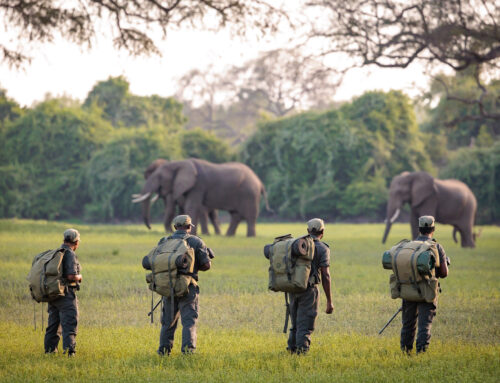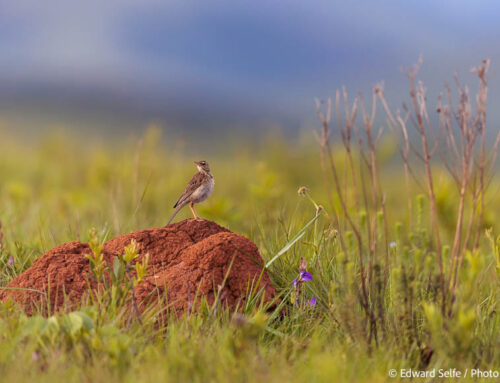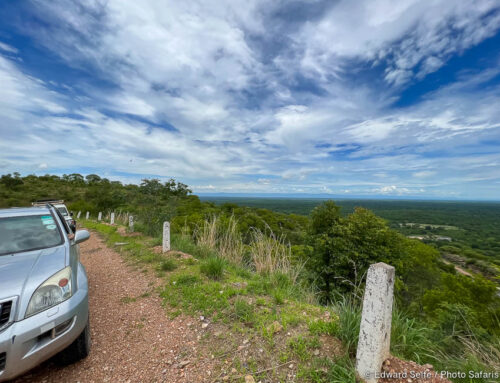Throughout the course of the COVID-19 journey, my guests have repeatedly asked me about the people of the South Luangwa. How will they cope with the virus? What are the healthcare facilities like in the surrounding area? How will their livelihoods be affected by the dramatic slow-down in tourism that has resulted from the global travel shutdown?
People are, of course, central to everything in the wildlife world. Much as we might think that it’s all about animals and birds, in fact it is people for whom we conserve wild places, people who provide the funding to safeguard nature and also people who work to ensure that wildlife experiences are rewarding & memorable for visitors. It’s regrettable to say it, but now that Nature has been so dramatically affected by anthropogenic influences, it is only due to demand for wildlife tourism that most wild places still exist at all.
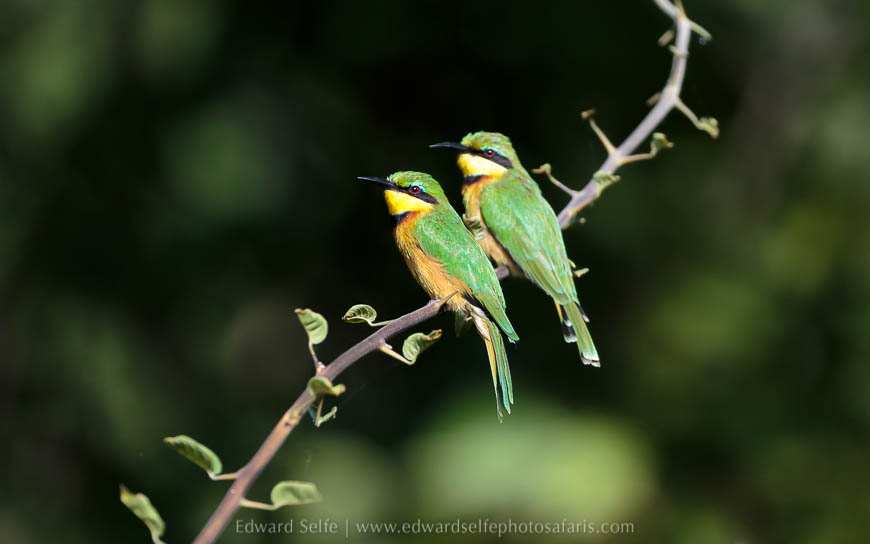
Visitors to the South Luangwa NP bring in around USD 30 million in revenues to the local area each year. This income is directed initially to lodges, camps, transporters, airlines and government departments. But it quickly trickles down into the local economy in the form of wages, local purchases, payment for licenses and investments in infrastructure. This cash flows around the economy many times, generating a very substantial multiplier effect.
We all hope for a swift resolution of this health crisis, but with European nations (a key source of business for Zambia) entering their second period of lockdown, this looks unlikely. As things look at the moment, there may be no tourism in the South Luangwa this year at all…. The impact of turning off the flow of dollars into the Luangwa Valley is being keenly felt by tourism operators already, but is only just starting to be felt by local people.
I spoke with a taxi driver today who said that business was slowing and he was worried about his family. I asked him what he would do. He suggested that he would sell his taxi and live off the proceeds for a while until he could buy another vehicle. Without wanting to ruin his day, I asked him who he would sell his taxi to, since very few people have cash available to buy anything. He said that the shop owners would have cash as they are getting rent from their tenants. I pointed out that with fewer shoppers, most of whom were employed by lodges previously, the shopkeepers would not be paying their rents this month…. It took a while but he began to see how the impact of the tourism slow-down would affect the whole economy.
Since so many people have asked me about the impact of the virus (and associated travel restrictions) on local people, I wanted to write a brief summary. Please note that this is my assessment of the situation and it might be that there are exceptions.
The COVID-19 situation in Zambia:
Currently there are very few confirmed cases of corona virus in the country: just 43 at time of writing (with 2 deaths). Nevertheless, the government has restricted movement of people at borders, advised against unnecessary travel, closed bars, restaurants, churches and schools and has also enforced social distancing and hand-wash facilities at all premises. So some businesses are continuing as normal, while others are clearly affected very badly. We fully support the government’s attempts to control the spread – we are fortunate that the ‘starter population’ with the virus in Zambia is very small so containment is still a possibility.
The healthcare situation in Zambia:
Health centres and hospitals in Zambia are able to cope with the day-to-day maladies of a developing nation. They deal with seasonal malaria epidemics and occasional outbreaks of cholera and typhoid. But the pressures that a full-blown COVID outbreak (such as we are seeing in US, Europe and Australia) would overwhelm their systems entirely. There are too few ventilators to deal with the crisis; combine this with large families living in small houses and it is likely that there would be little flattening the curve here. If the virus gets hold, it would sweep through the population quickly. All the more reason to contain the small number of cases that have been discovered so far. Measures such as cotton face-masks that are shown to reduce transmission by as much as 70% are helping; you can support Tribal Textiles in their bid to supply communities, clinics and hospitals with these masks – all donations most gratefully received.
Wildlife police officers, anti-poaching scouts and conservation work:
Many people have been concerned about the law enforcement capability during this period. In Zambia, where there is currently no lock down, conservation teams from Wildlife Crime Prevention, Conservation South Luangwa, Zambian Carnivore Programme and the Department for National Parks & Wildlife are able to move freely around, running patrols and maintaining road-blocks to control illegal movement of contraband such as ivory, bush meat and animal skins. Intelligence operations can continue and these organisations’ capabilities remain at 100%.
However, what has changed is that there are many people who have lost their livelihoods, due to the downturn in tourism, who now have the need (and the time) to turn to poaching. This may start in a small way, with fishing in illegal areas, but will quickly turn to snaring and more serious off take.
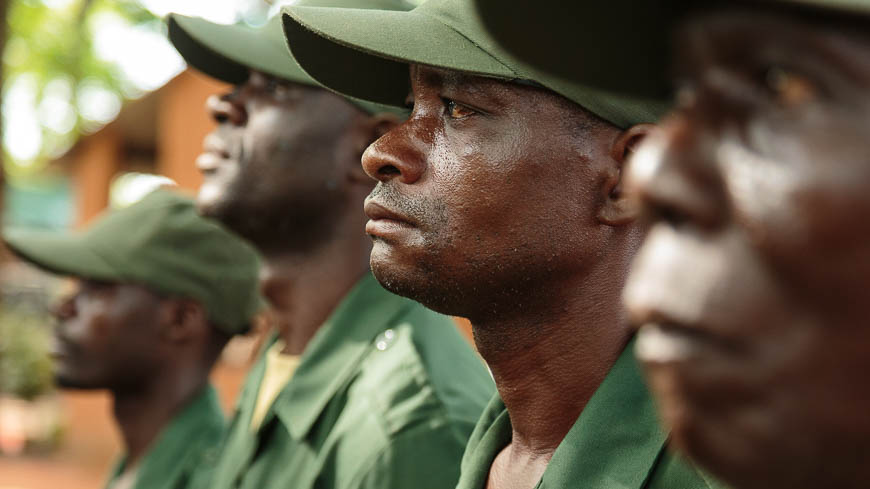
The South Luangwa’s conservation NGOs welcome support via their websites to continue their essential work.
Safari guides & lodge staff
Nearly 1,000 local people are employed in the tourism industry in South Luangwa; most of these people will support at least 10 people from their own families and relatives. This represents a large portion of the 50,000+ people living around the main access to the National Park.
Camps and lodges want to support their staff through this tough time; they all recognise that the world-class safari experience on offer here is bolstered and supported by their hard working employees. They also understand that their staff’s salaries drive the local economy and that is an important role in keeping shops open and maintaining the supply chain.
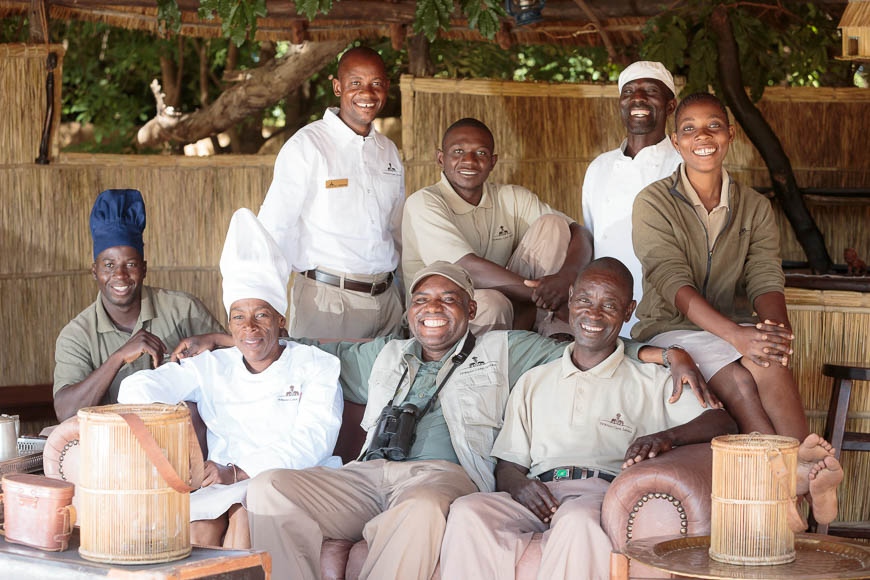
Most camps have, therefore, put together a package of support to their staff, even if they are not working, that will help them support their families over the coming months. With no income at all currently, it is admirable that lodges have been able to find and ring fence funds for their staff and is an indication of the value that the tourism industry has in this area.
Local people
There are hundreds, if not thousands, of jobs that have been created as off-shoots from the tourism industry; these include retailers, fuel pump attendants, shopkeepers, transporters, mechanics and farmers. While there is still demand for all these services, of course, the main source of funding that trickles down through the economy has been removed. Most shops that I have visited have reported business to be very slow.
The government is not in a position to offer financial support to these businesses as has been the case in most developed nations. Fortunately, due to the nature of the economy here, these businesses will likely not “go under” but more likely just go through a period of hibernation where they do little trade, pay no rent, and hope to revive when things improve. While the businesses will perhaps survive, the people who own them are facing a very bleak period.
How to Help…
There has been an overwhelming desire to help for which we are all very grateful. Of course I know that the South Luangwa is a very special place and must be protected at all costs, but it is great to know that so many others think the same!! I will be writing a blog tomorrow that outlines some of the ways that you can help this wonderful area, even if you are not able to visit this year. Thank you in advance for your concern and for your support.
Stay home and Stay Safe.

